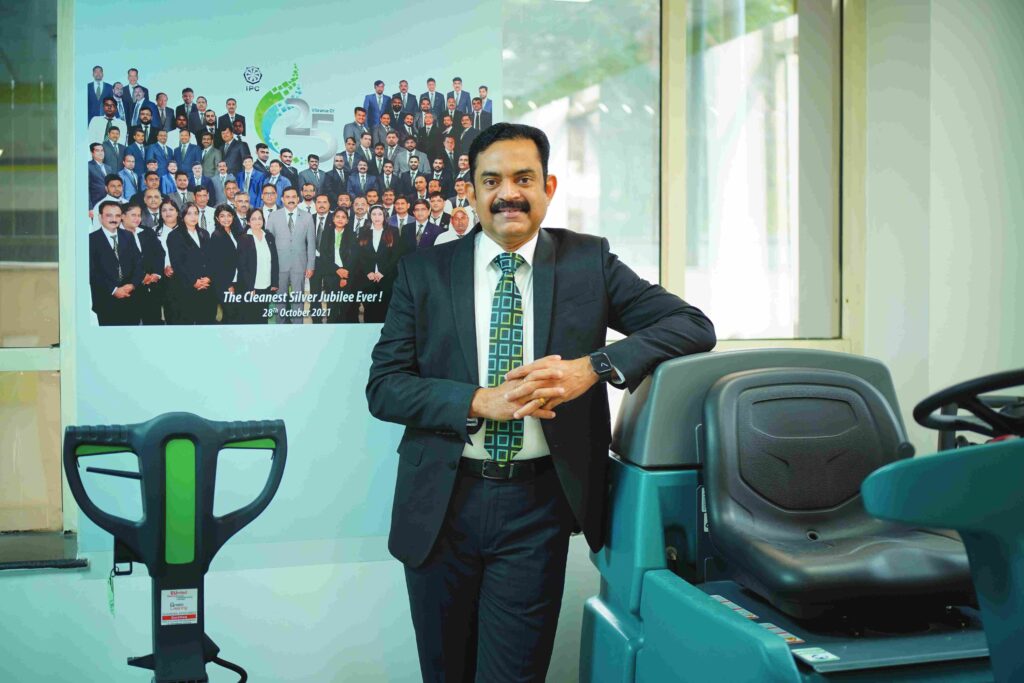
Focused on extending IPC Tennant’s operational footprint beyond India, looking closely at Sri Lanka, Bangladesh, Nepal, Bhutan, Pakistan and even the Maldives, Managing Director Tony Chazhoor in his new additional charge as GM-Indian Subcontinent outlines his ambitious plan to tap into India’s neighbouring markets using the company’s inherent strengths in manufacturing, diverse product offerings and direct reach. Excerpts of his candid talks with Editor Mohana M
Regional Reach
“We have not been focused on neighbouring countries as much as we should have,” admits Tony. “Brands from India already have a strong commercial presence in Sri Lanka, Bangladesh, and Nepal — many India corporates, for example, supplies wide range of products in these countries. We are late to capitalise on this opportunity.”
The cultural, linguistic, and logistical similarities between India and these neighbouring nations are a major advantage. “Doing business is far easier for us than for companies coming from China or Singapore,” says Tony.
Presence, Not Just Products
Some of the cleaning equipment brands have presence in these neighbouring countries, “it is largely through dealers and franchise partners. There is no significant direct presence. That is where our strategy will differ.”
IPC Tennant is planning to leverage its soon-to-launch manufacturing in India to serve these markets more efficiently. “We will start with third-party manufacturing and have an MoU in place. Eventually, we will take over and expand these operations,” Tony explains.
Products manufactured in India can be shipped much faster to Nepal, Bangladesh, and Sri Lanka — far more efficiently than importing from China or Europe. “It becomes a natural extension
for us.”
Multiple Price Points
One of IPC Tennant’s major advantages is its ability to cater to different market segments. “Our competitors often have straightjacketed offerings. We can offer premium Tennant range, mid-tier IPC models, and even a comprehensive economical range — thanks to our China manufacturing and upcoming India plant.”
This unique capability that Tennant brought through acquisitions is empowering the brand to offer wide range of products to choose from especially in these markets like South Asia.
Market Conditions and Demand
India, says Tony, is a vast and growing economy — but its neighbours are in varying stages of recovery. “Sri Lanka is recovering from a prolonged economic crisis, with import restrictions still in place due to foreign exchange shortages. Even vehicle manufacturers are surviving by reconditioning vehicles that are over 20 years old.”
This presents a unique opening. “India is one of the few countries Sri Lanka is still able to import from. So, we can help them with cleaning machines and equipment they need.”
In contrast, Bangladesh is already a big user of mechanised solutions. “The country has large-scale ceramic and textile industries. Despite its economic challenges, it uses high-end Tennant machines imported from the US. That shows the preference for quality equipment,” he says.
Nepal, meanwhile, is not new to IPC machines. “They have been using our machines for years, sometimes buying directly, or via dealers. IPC Tennant already enjoys a modest foothold in Nepal, which it now plans to strengthen.”
Though a small market, the Maldives is part of the plan — considered an extension of the Sri Lanka strategy. “We have identified a large dealer in Sri Lanka who also operates in the Maldives. We will enter both markets through this channel.”
Why Branches, Not Just Distributors?
At a time when many companies are cutting costs and shifting to dealer-only models, IPC Tennant is going the other way — opening more branches across India.
“India is transitioning to a mature market for cleaning machines. People still compare machine costs to manual labour. But with labour shortages and a rising social standard, mechanisation is inevitable.”
To build trust, visibility, and awareness, having a direct presence is key. “In many cases, buyers prefer dealing with the principal company directly, especially for training and service. You need a strong presence to evangelise the benefits of mechanised cleaning.”
IPC Tennant currently has 125 employees and aims to expand to 200 by 2027. “We will have 25 branches by then. Early results from new locations, such as Patna, underscore the value of targeting rapidly developing tier 2 & tier 3 cities.”
Strategic Triad- Go To Market strategy
Tony outlines a three-pronged strategy for market penetration:
• Direct branches in key cities to maintain brand control and customer relationships
• Dealers in regions requiring constant presence, such as the Northeast
• Specialised partners for sectors like aviation and government, where domain knowledge is essential
“We are not strong in government sales, so we appoint expert partners for such sectors. The idea is to maximise reach while ensuring service consistency.”
Two Growth Engines
Summing up his vision, Tony points to two pillars that will drive IPC Tennant’s future: The Tennant brand – selectively sold but highly trusted in critical segments; and Tier 2 and 3 markets – offering long-term business potential for both IPC and Tennant product lines.
“There is still so much untapped potential. If we are ready to explore, the possibilities are immense,” he concludes.
 CIJConnect Bot-enabled WhatsApp
CIJConnect Bot-enabled WhatsApp












